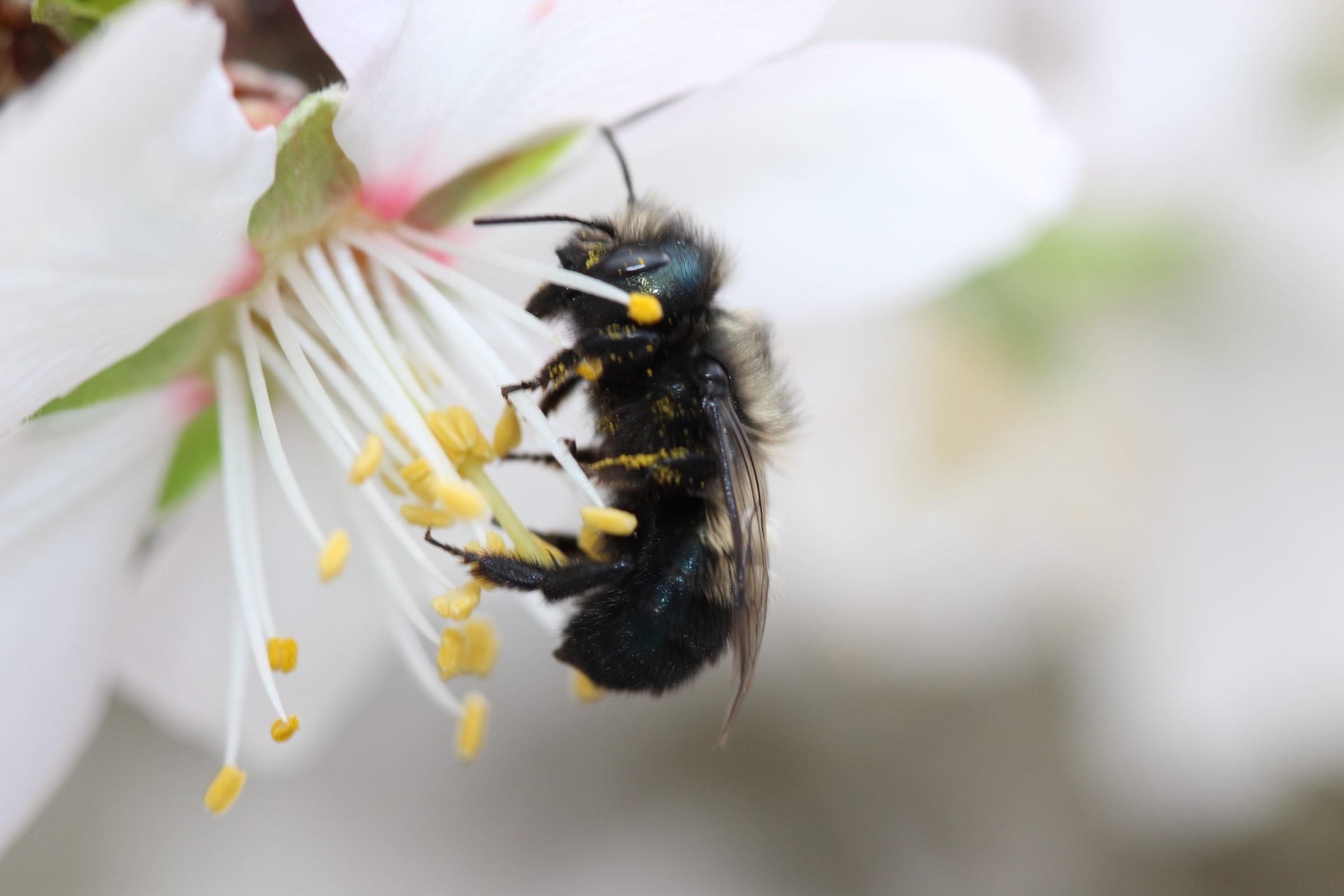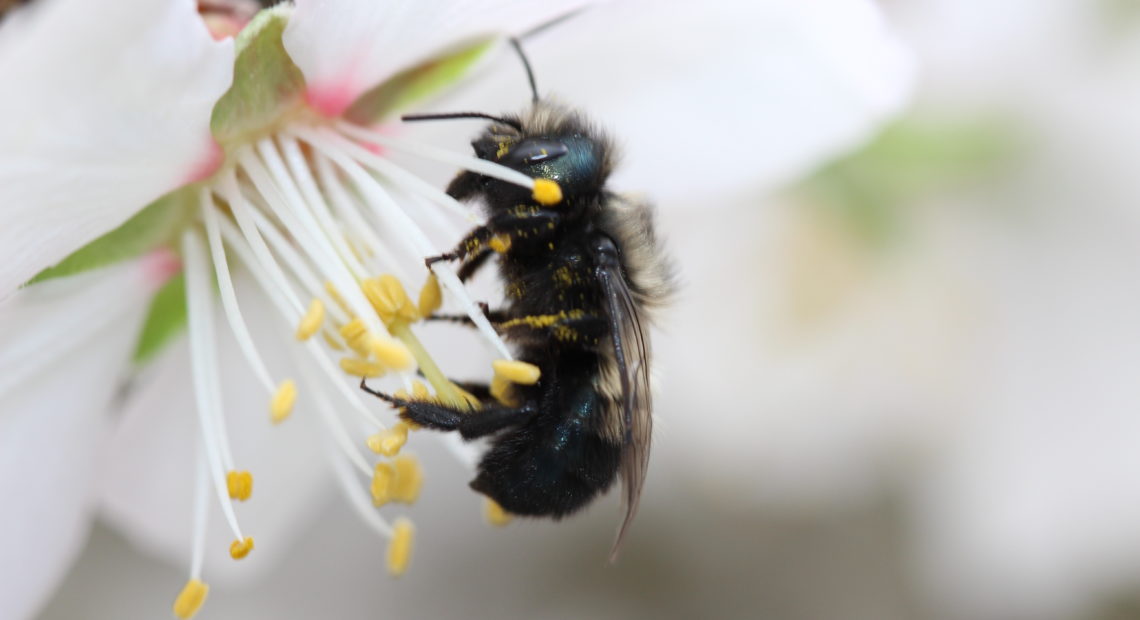
Could Blue Bees Be Better For Northwest Crops?
Listen
In Bothell, Washington, Jim Watts has a busy operation.
He’s the owner of Watts Solitary Bees, and this year, he’s propagated 1.5 million blue orchard bees, also known as a mason bee. His father started the business in 1965 with leafcutter bees. But about 10 years ago, Watts started using blue orchard bees as well.
Unlike honey bees, blue orchard bees … well, don’t make honey. They also don’t work in colonies. And in the decade Watts has been working with them, he’s never been stung, but he says their sting is more like a mosquito bite.
These flying beauties are special because they can work in cooler climates. In a cold, wet spring they’re still able to fly and pollinate, which honey bees can’t do. And while honey bees don’t like working with certain crops like pears, blue orchard bees take well to them.
And they’re better pollinators, too.
“The mason bee, when she goes from flower to flower, a lot of the pollen falls off. So she’s really bad at collecting pollen, which makes her a great pollinator,” Watts says. “Almost every single bloom she visits ends up getting pollinated – much better than the honey bee in terms of efficiency.”
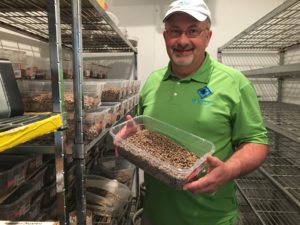
Jim Watts in the cooler where he keeps bees before they go to farmers. On the rack are 600,000 cocooned blue mason bees, which will travel to Oregon’s Willamette Valley to pollinate meadowfoam.
CREDIT: ESMY JIMENEZ/NWPB
Despite their abilities, the biggest problem has been having enough bees to go around. Watts bred and raised two million bees this year and delivered them to 10 farms along the West Coast. Next year he hopes to have four to five million.
During blossoming season, farmers need roughly a thousand blue mason bees per acre. But the problem is that in California alone, there are over a million acres of almonds. So there’ still quite a ways to go to making the mason bees a widespread crop pollinator in the West.
Natalie Boyle is a researcher at the U.S. Department of Agriculture’s Logan Bee Lab in Utah. She has high hopes for blue mason bees.
“It’s really cool that [blue mason bees] are a native species,” Boyle says. “I think people don’t realize honey bees are non-native to the United States and were brought over from Europe. So it’s cool to rely on naturally occurring species to perform these important pollination services.”
Boyle explains that having more diverse pollinators is vital during this time when honey bees are under stress from pesticide exposure, varroa mites and other challenges.
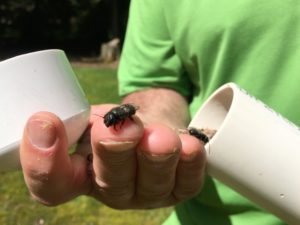
A blue orchard bee crawls on Jim Watts’ hand. He propagates the bees in plastic containers. On warm days, the bees chew out of their cocoon and fly off to find food. Males will live two weeks while females live about six weeks. CREDIT: ESMY JIMENEZ/NWPB
Next year, Boyle’s team will launch trials in some of Washington’s sweet cherry orchards.
But the cost of blue masons is still too high for some farmers. Five years ago, each one went for $1 each. This spring, Watts is selling them to farmers at $0.30 each. He hopes that next year, the price will be even lower so his blue mason bees will be on par with the cost of honey bees, and more farmers will use them to pollinate crops.
“There could be a day where everybody is like ‘What do you don’t use blue orchard bees? You can’t have an orchard without those!’ Watts says. “Maybe that won’t happen in my lifetime but I could see a day where that happens.”
Copyright 2018 Northwest Public Broadcasting
Related Stories:
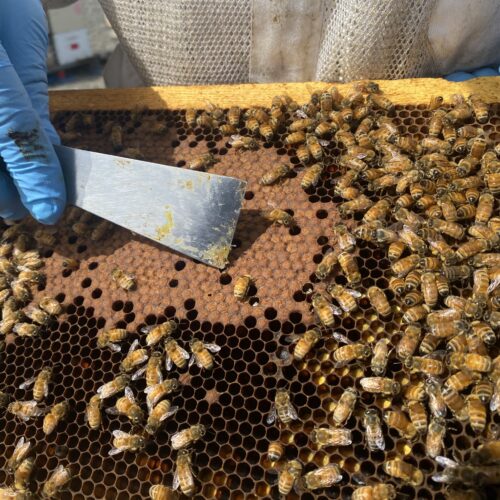
Fewer Northwest bees shipped to California’s almonds could be a buzzkill for Washington and Oregon crops
Brandon Hopkins, a bee researcher with Washington State University, points May 15 with his hive tool to the new bee larvae cells where baby bees develop in the hive near
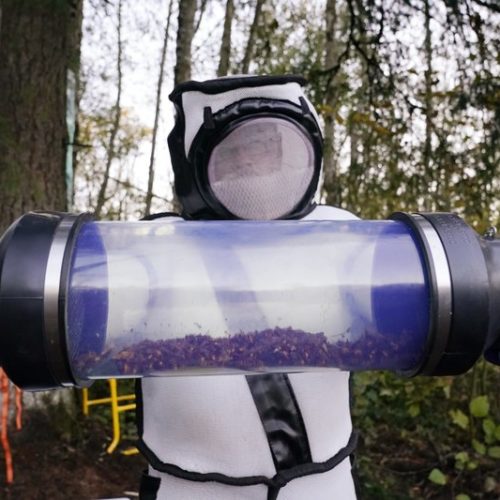
Scientists Identify And Destroy First Giant Hornet Nest In Northwestern Washington
The state Agriculture Department had spent weeks searching, trapping and using dental floss to tie tracking devices to Asian giant hornets, which can deliver painful stings to people and spit venom but are the biggest threat to honeybees that farmers depend on to pollinate crops.
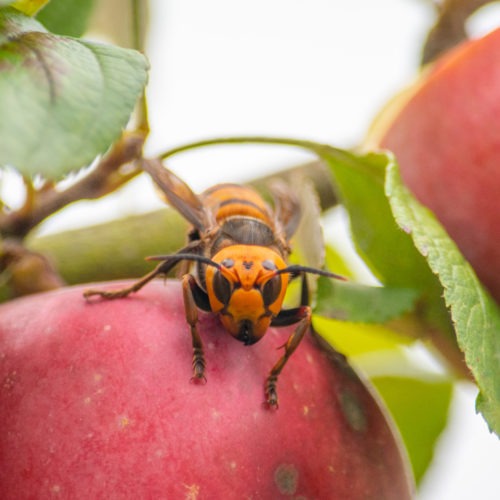
Foiled Again: Giant Hornet Eludes Washington State Scientists Trying To Track Down Nest
Researchers in Washington have lost track of an Asian giant hornet they were following — a stinging setback in the pursuit to eradicate an invasive species that threatens to decimate North American bee populations.

